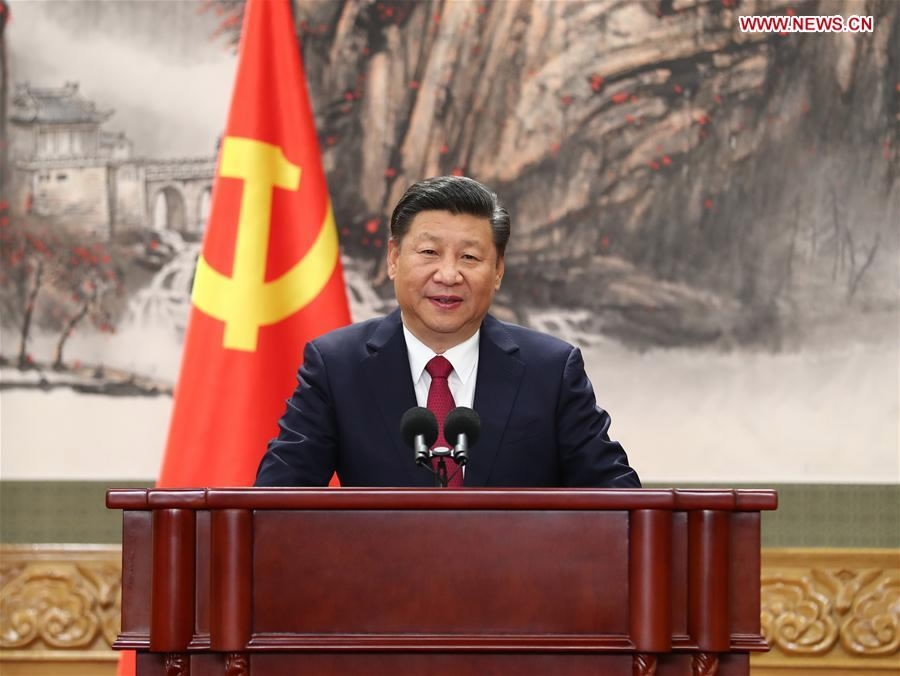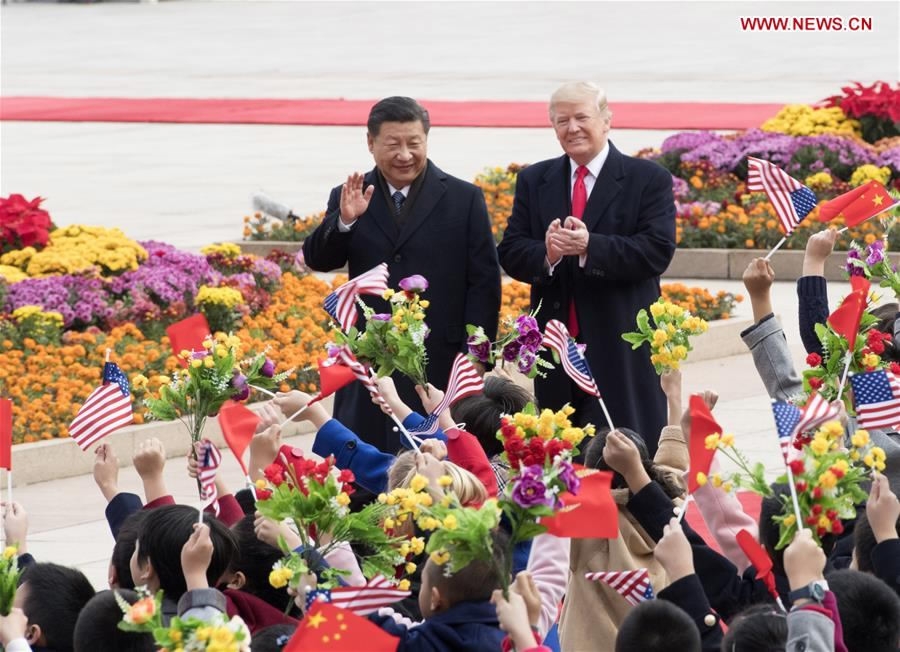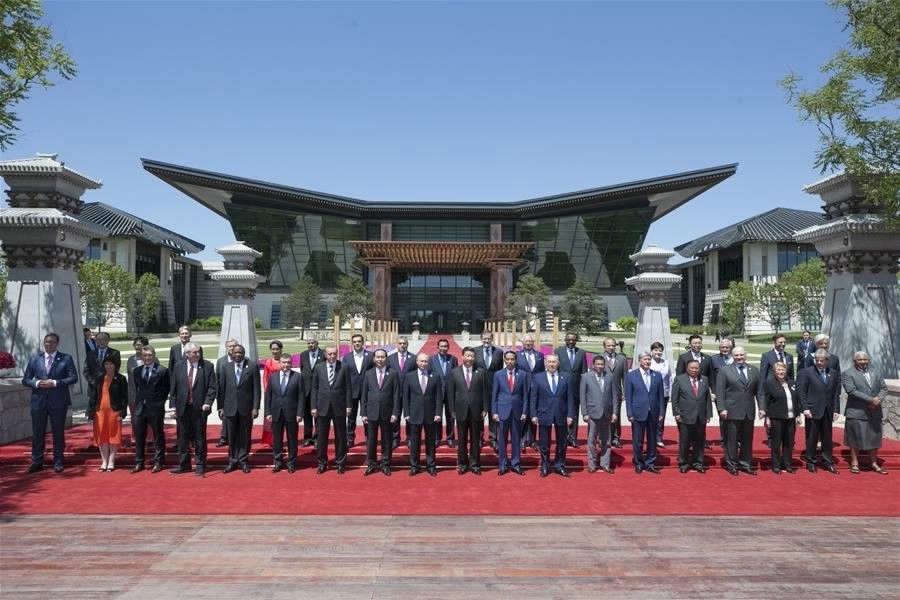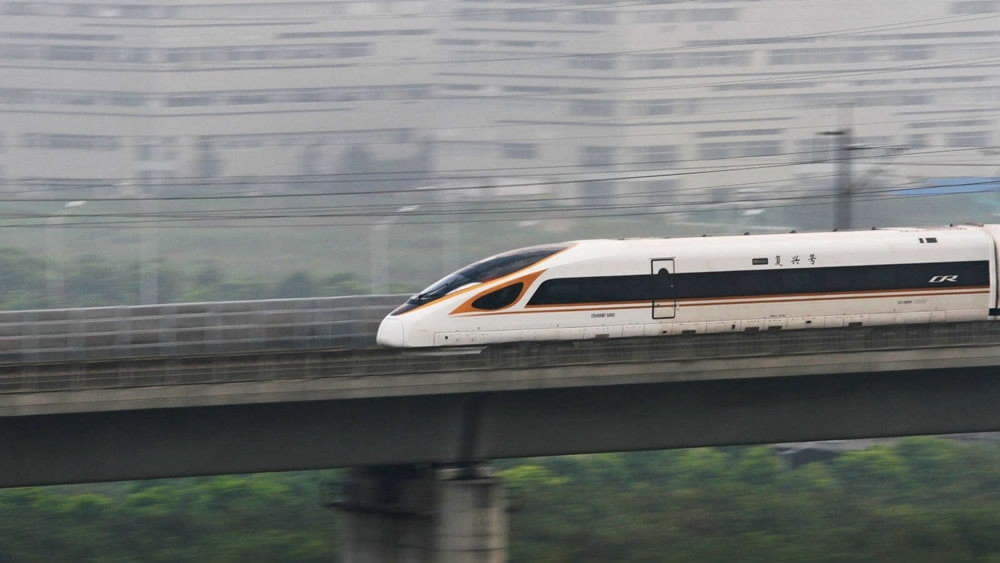Chinese President Xi Jinping will travel to the coastal city of Da Nang, Vietnam from November 10 to 11 to attend the informal leaders’ meeting of the Asia-Pacific Economic Cooperation (APEC), where he is expected to put forward “Chinese solutions” to the challenges facing the world in his keynote speech.
Xi will also pay state visits to Vietnam and Laos following the meetings.
As it is his first overseas trip since being re-elected as General Secretary of the Communist Party of China Central Committee during the 19th CPC National Congress last month, it is definitely a good opportunity for the world not only to hear what Xi has to say about Chinese proposals for resolving major international issues, global governance and the economic cooperation in the Asia-Pacific region, but also to see how he demonstrates “major country diplomacy with Chinese characteristics” for the New Era, a policy adopted at the National Party Congress.

Xi Jinping, General Secretary of the Central Committee of the Communist Party of China (CPC), speaks when meeting the press at the Great Hall of the People in Beijing, capital of China, Oct. 25, 2017. /Xinhua Photo
Xi Jinping, General Secretary of the Central Committee of the Communist Party of China (CPC), speaks when meeting the press at the Great Hall of the People in Beijing, capital of China, Oct. 25, 2017. /Xinhua Photo
Today there are two strong forces trying to influence the direction of the world’s development. One is globalization which, after a decade of fast development, has been slowing down due to worldwide economic and financial crises. The other is a revived isolationist trend that has appeared in a handful of developed countries.
Against this international background, the CPC adopted a new diplomatic policy, the aim of which is to advance China’s diplomatic agenda in a comprehensive, multilevel, multifaceted way so as to facilitate the evolution of the global governance system and to create a favorable external environment for China’s development.
According to the CPC resolution, the global governance system contains two key concepts; 1) to foster a new type of international relation; and 2) to build a community with a shared future for mankind.
The two concepts are based on China’s experience of pursuing national independence as well as economic and social development.
New type of international relations

Chinese President Xi Jinping (L) holds a grand ceremony to welcome U.S. President Donald Trump at the square outside the east gate of the Great Hall of the People in Beijing, capital of China, Nov. 9, 2017. /Xinhua Photo
Chinese President Xi Jinping (L) holds a grand ceremony to welcome U.S. President Donald Trump at the square outside the east gate of the Great Hall of the People in Beijing, capital of China, Nov. 9, 2017. /Xinhua Photo
China’s success has proven that a nation’s political independence is the foundation for its economic and social development. But the older international order was pretty much based on power politics and rule of the strong, which created the world’s richest few.
The result is an unbalanced and unfair international structure of politics and economies, which enabled richer countries to take advantage of other less developed ones.
Since the end of the Second World War, many newly-independent countries and less developed countries have been trying hard to push economic and social development.
Known as the developing countries, they have been calling for the establishment of a new international order to facilitate their national development. Some international and regional organizations, such as the Non-Aligned Movement, the Association of Southeast Asian Nations (ASEAN) and the African Union, have been set up for that very purpose.
Despite these efforts, progress has been slow for various reasons. Now, with the advancement of the globalization, China has proposed a new type of international relations which includes these principles:
– respect the right of the people of a country to choose its own development path;
– settle disputes through dialogue and consultation;
– reject the Cold War mentality and power politics, and develop state-to-state relations based on mutual respect and cooperation, rather than mutual hatred and confrontation;
– uphold international fairness and justice by opposing acts that impose one’s will onto others or interfere in the internal affairs of others.
Community with a shared future for mankind

Chinese President Xi Jinping, foreign delegation heads and guests pose for a group photo at the Leaders' Roundtable Summit of the Belt and Road Forum for International Cooperation at Yanqi Lake International Convention Center in Beijing, on May 15, 2017. /Xinhua Photo
Chinese President Xi Jinping, foreign delegation heads and guests pose for a group photo at the Leaders' Roundtable Summit of the Belt and Road Forum for International Cooperation at Yanqi Lake International Convention Center in Beijing, on May 15, 2017. /Xinhua Photo
Since the People’s Republic of China was founded 68 years ago, the ups and downs of the country’s development have over and over again proven that no country can alone address the many challenges facing mankind and that no country can afford to retreat into self-isolation as openness brings progress while self-seclusion hinders development.
So the Communist Party has made it its abiding mission to strive for both the well-being of the Chinese people and human progress, making new and greater contributions for building a community with a shared future for mankind, which includes the following features:
– stay on the path of peaceful development;
– foster new thinking on common, comprehensive, cooperative, and sustainable security;
– pursue open, innovative, and inclusive development that benefits everyone;
– boost cross-cultural exchanges characterized by harmony within diversity, inclusiveness, and mutual learning;
– people of all countries work together to build an open, inclusive, clean, and beautiful world that enjoys lasting peace, universal security, and common prosperity.
New measures to achieve this goal
This new diplomatic policy sends out two messages to the world. Firstly, China’s success is not a model to be imposed onto others to follow, but a new option for other countries to pursue their national development. Secondly, China will continue its efforts to safeguard world peace, contribute to global development, and uphold international order.
The reason is simple: the dream of the Chinese people is closely connected with the dreams of the peoples of other countries; the Chinese Dream can be realized only in a peaceful international environment and under a stable international order.
As the world’s second largest economy, China’s development has a great impact on the global economy. I believe that the new diplomatic policy adopted by the Communist Party of China will ensure a better future for the country and the world.
(With a doctoral degree in communications from the China University of Communications, the author has been working in the field of international journalism for 30 years. The article reflects the author's opinion, and not necessarily the views of CGTN. )





